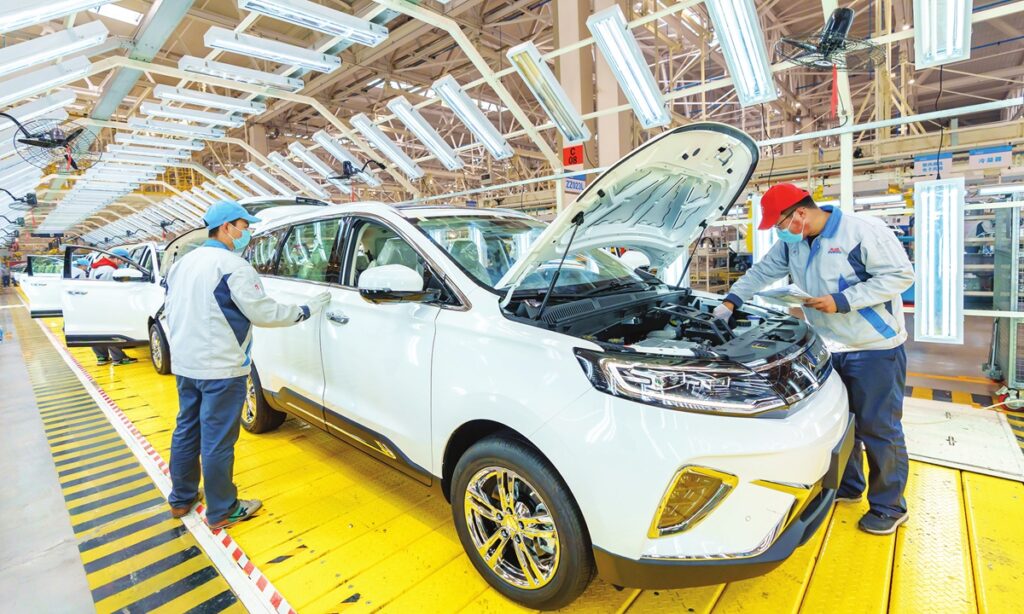In July, China exported 88,000 new-energy passenger vehicles, marking an 80 percent year-on-year increase and accounting for 27 percent of total passenger car exports, according to the latest industry statistics.
China’s exports of new-energy vehicles (NEVs) have demonstrated consistent growth. In the first half of this year, NEV exports surged 2.6 times compared to the same period in 2022, representing 25 percent of total car exports.
The exports of NEVs, along with lithium batteries and solar batteries, contributed 1.8 percentage points to China’s total goods exports in the first half of 2023, registering a 61.6 percent year-on-year increase, as reported by statistics from the General Administration of Customs.
Benefiting from China’s NEV scale advantage and expanding market demand, domestically manufactured NEVs have been increasingly finding their way into global markets. The NEV export market is expected to continue its positive trajectory, noted the China Passenger Cars Association (CPCA) on Tuesday.
In Europe, SAIC and other independent brands have performed exceptionally well, while BYD and other brands have grown their market share in Southeast Asia. CPCA also reported that, in addition to the robust performance of traditional export-oriented automakers, emerging NEV players have been witnessing rising export sales.
Among NEV exports, Shanghai-made Tesla secured the top position with 32,862 units, followed by BYD with 18,169 units and SAIC with 17,724 units.
The increase in NEV exports contributed to the overall growth of passenger car exports from China. In July, the total exports of passenger cars reached 310,000 units, a notable 63 percent year-on-year rise. For the January-to-July period, passenger car exports totaled 1.99 million units, an impressive 81 percent increase compared to the previous year, according to CPCA.
Apart from exports, July’s retail sales of passenger cars in the domestic market were the second-highest on record, reaching a total of 1.775 million units. Since the beginning of 2023, the cumulative retail sales of the passenger car market have reached 11.299 million units, indicating a 1.9 percent year-on-year increase.
Specifically, NEV retail sales in July amounted to 641,000 units, reflecting a robust 31.9 percent year-on-year growth and pushing the cumulative retail sales to 3.725 million units, an impressive rise of 36.3 percent.
In the NEV wholesale market, BYD led with 261,105 units, followed by Tesla with 64,285 units, GAC Aion with 45,025 units, and Geely with 41,014 units, as per data provided by CPCA.
According to CPCA, the ongoing high oil prices have contributed to the growth of the NEV market. Currently, China’s automotive industry is experiencing significant transformations, driven by the increasing acceptance of NEVs among domestic consumers and the rising proportion of luxury cars in the market.
In conjunction with domestic tax incentives for NEV purchases and various automobile consumption promotion initiatives, CPCA maintains its forecast of 21 million passenger cars in retail sales and 8.5 million new-energy passenger cars in wholesale for the year 2023.
(Global Times)




